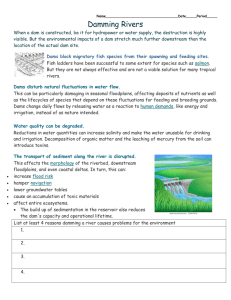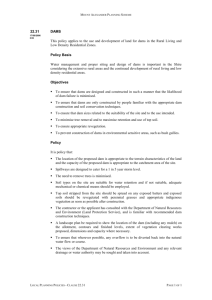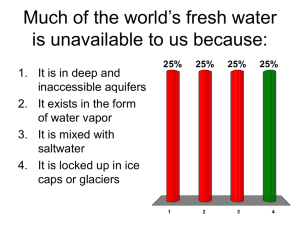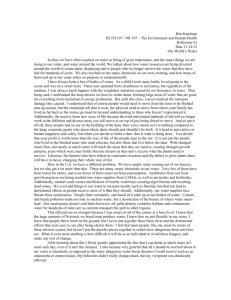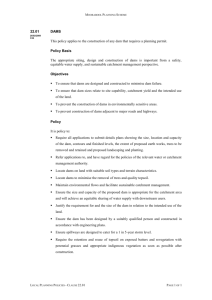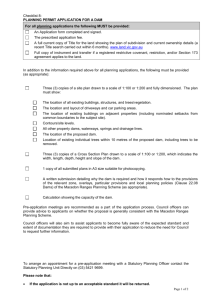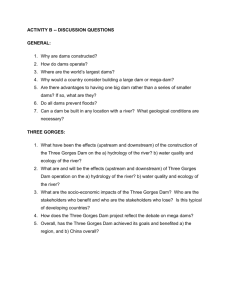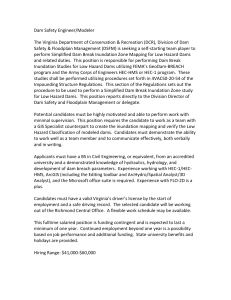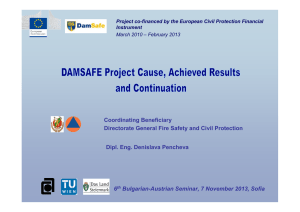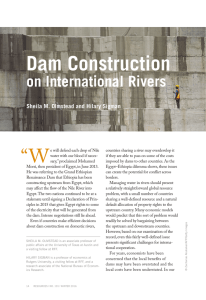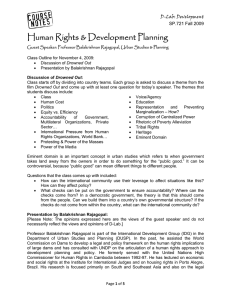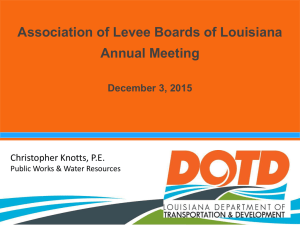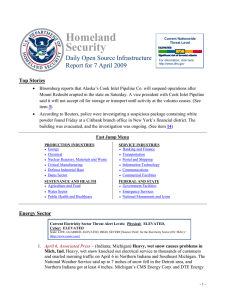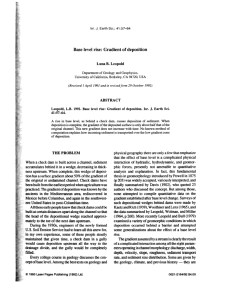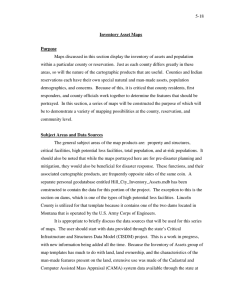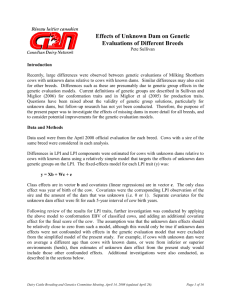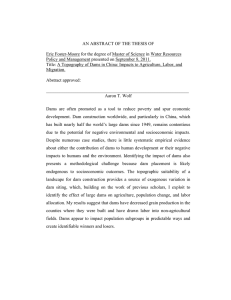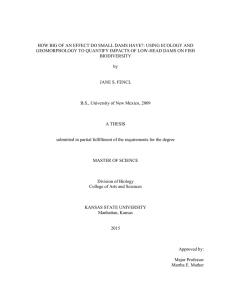One of the advantages of hydro electric dams is that they
advertisement
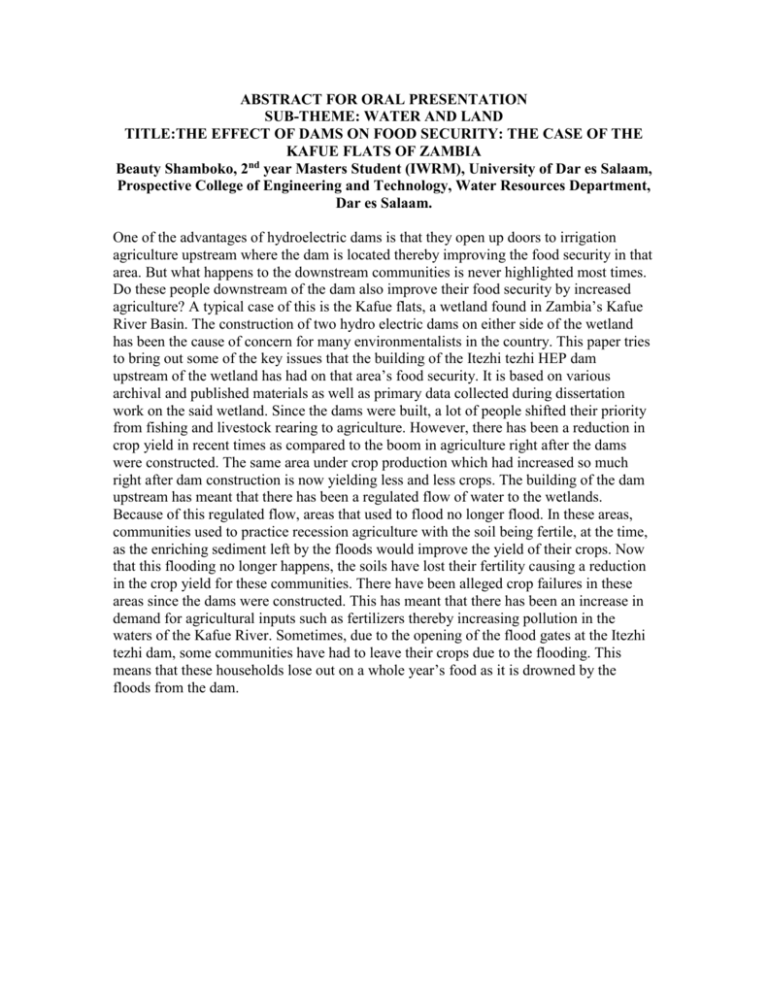
ABSTRACT FOR ORAL PRESENTATION SUB-THEME: WATER AND LAND TITLE:THE EFFECT OF DAMS ON FOOD SECURITY: THE CASE OF THE KAFUE FLATS OF ZAMBIA Beauty Shamboko, 2nd year Masters Student (IWRM), University of Dar es Salaam, Prospective College of Engineering and Technology, Water Resources Department, Dar es Salaam. One of the advantages of hydroelectric dams is that they open up doors to irrigation agriculture upstream where the dam is located thereby improving the food security in that area. But what happens to the downstream communities is never highlighted most times. Do these people downstream of the dam also improve their food security by increased agriculture? A typical case of this is the Kafue flats, a wetland found in Zambia’s Kafue River Basin. The construction of two hydro electric dams on either side of the wetland has been the cause of concern for many environmentalists in the country. This paper tries to bring out some of the key issues that the building of the Itezhi tezhi HEP dam upstream of the wetland has had on that area’s food security. It is based on various archival and published materials as well as primary data collected during dissertation work on the said wetland. Since the dams were built, a lot of people shifted their priority from fishing and livestock rearing to agriculture. However, there has been a reduction in crop yield in recent times as compared to the boom in agriculture right after the dams were constructed. The same area under crop production which had increased so much right after dam construction is now yielding less and less crops. The building of the dam upstream has meant that there has been a regulated flow of water to the wetlands. Because of this regulated flow, areas that used to flood no longer flood. In these areas, communities used to practice recession agriculture with the soil being fertile, at the time, as the enriching sediment left by the floods would improve the yield of their crops. Now that this flooding no longer happens, the soils have lost their fertility causing a reduction in the crop yield for these communities. There have been alleged crop failures in these areas since the dams were constructed. This has meant that there has been an increase in demand for agricultural inputs such as fertilizers thereby increasing pollution in the waters of the Kafue River. Sometimes, due to the opening of the flood gates at the Itezhi tezhi dam, some communities have had to leave their crops due to the flooding. This means that these households lose out on a whole year’s food as it is drowned by the floods from the dam.
